
_-_S%C3%A3o_Tom%C3%A1s.jpg)
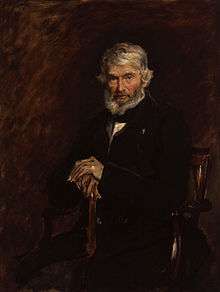
Happiness is an emotional or affective state that is characterized by feelings of enjoyment and satisfaction. As a state and a subject, it has been pursued and commented on extensively throughout world history.

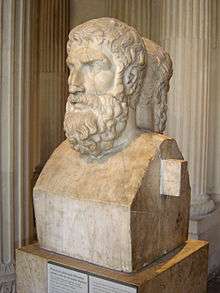
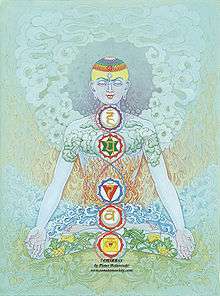
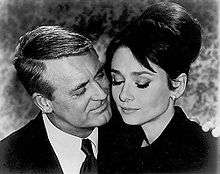



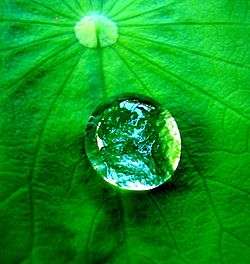



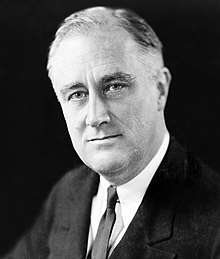
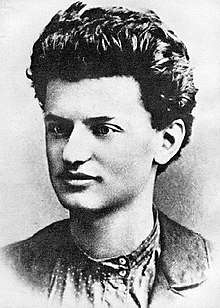

.jpg)
A
- I have now reigned above fifty years in victory or peace; beloved by my subjects, dreaded by my enemies, and respected by my allies. Riches and honours, power and pleasure, have waited on my call, nor does any earthly blessing appear to have been wanting to my felicity. In this situation, I have diligently numbered the days of pure and genuine happiness which have fallen to my lot: they amount to Fourteen: - O man! place not thy confidence in this present world!
- Abd al-Rahman III, quoted by Gibbon in Decline and Fall of the Roman Empire, chap. LII
- Happiness was simply something that occurred in a well-regulated life.
- Brian Aldiss, Steppenpferd, in David G. Hartwell (ed.) Year's Best SF 6, p. 310 (Originally published in Fantasy & Science Fiction magazine, February 2000)
- Virtue’s true reward is happiness itself, for which the virtuous work, whereas if they worked for honor, it would no longer be virtue, but ambition.
- Thomas Aquinas, Summa Theologica
- Happiness, whether consisting in pleasure or virtue, or both, is more often found with those who are highly cultivated in their minds and in their character, and have only a moderate share of external goods, than among those who possess external goods to a useless extent but are deficient in higher qualities.
- The man who does not rejoice in noble actions is not even good; since no one would call a man just who did not enjoy acting justly, nor any man liberal who did not enjoy liberal actions; and similarly in all other cases. If this is so, virtuous actions must be in themselves pleasant. But they are also good and noble, and have each of these attributes in the highest degree, since the good man judges well about these attributes; his judgment is such as we have described. Happiness then is the best, noblest, and most pleasant thing in the world.
- Aristotle, Nicomachean Ethics, Book 1, Chapter 8
- To be able without hindrance to exercise his preeminent quality, whatever its nature, is real happiness.
- Aristotle, Nicomachean Ethics, X.7, cited in Schopenhauer, Parerga und Paralipomena, E. Payne, trans. (1974) Vol. 1, pp. 341-342
- Those who do not observe the movements of their own minds must of necessity be unhappy.
- Marcus Aurelius, Meditations, 2.8
B
- They say you can’t really remember pain, remembering only the fact of it, not the precise way it feel. Maybe the same thing’s true of happiness.
- William Barton, Down in the Dark (originally published in Asimov's Science Fiction, December 1998; reprinted in The Year's Best Science Fiction, volume 16, edited by Gardner Dozois).
- I shall take the heart... for brains do not make one happy, and happiness is the best thing in the world.
- L. Frank Baum, lines for the Tinman in The Wonderful Wizard of Oz (1900).
- In all this world there is nothing so beautiful as a happy child.
- L. Frank Baum, in lines for Santa Claus in The Life and Adventures of Santa Claus (1902).
- Happiness can be found even in the darkest of times, if one only remembers to turn on the light.
- Harry Potter and the Prisoner of Azkaban (2004), screenplay by Steve Kloves
- To have been happy, madame, adds to calamity.
- Beaumont and Fletcher, The Fair Maid of the Inn (licensed 22 January 1626; 1647), Act I, scene 1, line 250.
- HAPPINESS, n. An agreeable sensation arising from contemplating the misery of another.
- Ambrose Bierce, The Cynic's Dictionary (1906); republished as The Devil's Dictionary (1911).
- Aristotle admitted that “equipment” as well as virtue is necessary for happiness, but he said nothing about how that equipment is acquired. A careful examination of the acquisition of equipment reveals that virtue impedes that acquisition. ... It would seem that nature is not kind to man, if the two elements of happiness—virtue and equipment—are at tension with one another.
- Allan Bloom, “Commerce and Culture,” Giants and Dwarfs (1990), pp. 282-283
- Life, liberty, and the pursuit of property were just what Aristotle did not talk about. They are the conditions of happiness; but the essence of happiness, according to Aristotle, is virtue. So the moderns decided to deal with the conditions and to let happiness take care of itself.
- Allan Bloom, “Commerce and Culture,” Giants and Dwarfs (1990), p. 284
- Ah! The happy ones of this world who are assured their daily bread—that is, all the things necessary to bodily life—and who, not wishing to know Jesus, have never for one single instant had the idea of suffering for their brothers, of sacrificing themselves for the wretched!
- Léon Bloy, Pilgrim of the Absolute (1947), p. 2
- Someone who has thought rationally and deeply about how the body works is likely to arrive at better ideas about how to be healthy than someone who has followed a hunch. Medicine presupposes a hierarchy between the confusion the layperson will be in about what is wrong with him, and the more accurate knowledge available to doctors reasoning logically. … At the heart of Epicureanism is the thought that we are as bad at answering the question “What will make me happy?” as “What will make me healthy?”
- Alain de Botton, The Consolations of Philosophy (New York: 2000), pp. 53-54
- Oompa Loompa doom-pa-dee-da
If you're not greedy, you will go far
You will live in happiness too
Like the Oompa Loompa doom-pa-dee-do.- Oompa Loompas, Oompa Loompa (Veruca) Leslie Bricusse and Anthony Newley, Willy Wonka & the Chocolate Factory (film)
- Happiness lies only in a divine unrest; and if you are lapped in comfort you stagnate and miss it.
- John Buchan, A Lodge in the Wilderness (1906), Chapter I.
Happy indeed we live, free from avarice amidst the avaricious. Amidst the avaricious men we dwell free from avarice.
Happy indeed we live, we who possess nothing. Feeders on joy we shall be, like the Radiant Gods.
Victory begets enmity; the defeated dwell in pain. Happily the peaceful live, discarding both victory and defeat.
- Gautama Buddha, Dhammapada, 199-201
C
- The Philosopher of this age is not a Socrates, a Plato, a Hooker, or Taylor, who inculcates on men the necessity and infinite worth of moral goodness, the great truth that our happiness depends on the mind which is within us, and not on the circumstances which are without us; but a Smith, a De Lolme, a Bentham, who chiefly inculcates the reverse of this,—that our happiness depends entirely on external circumstances.
- Thomas Carlyle, Signs of the Times (1829)
- The achievement of happiness requires not the ... satisfaction of our needs ... but the examination and transformation of those needs.
- Stanley Cavell, Pursuits of Happiness (1984)
- Happiness lies in the fulfilment of the spirit through the body.
- Cyril Connolly, The Unquiet Grave (1945), Part I.
- Domestic Happiness, thou only bliss
Of Paradise that hast survived the Fall!- William Cowper, The Task (1785), Book III, line 41.
- Thus happiness depends, as Nature shows,
Less on exterior things than most suppose.- William Cowper in Table Talk (1817) line 246.
- It is not the smallest use to try to make people good, unless you try at the same time — and they feel that you are trying — to make them happy. And you rarely can make another happy, unless you are happy yourself.
- Dinah Craik, A Woman's Thoughts About Women (1858), Ch. 10.
- Happiness! Can any human being undertake to define it for another?
- Dinah Craik, A Woman's Thoughts About Women (1858), Ch. 10.
- I fear, the inevitable conclusion we must all come to is, that in the world happiness is quite indefinable. We can no more grasp it than we can grasp the sun in the sky or the moon in the water. We can feel it interpenetrating our whole being with warmth and strength; we can see it in a pale reflection shining elsewhere; or in its total absence, we, walking in darkness, learn to appreciate what it is by what it is not.
- Dinah Craik, A Woman's Thoughts About Women (1858), Ch. 10.
- Happiness is not an end — it is only a means, and adjunct, a consequence. The Omnipotent Himself could never be supposed by any, save those who out of their own human selfishness construct the attributes of Divinity, to be absorbed throughout eternity in the contemplation of His own ineffable bliss, were it not identical with His ineffable goodness and love.
- Dinah Craik, A Woman's Thoughts About Women (1858), Ch. 10.
- The only way to make people good, is to make them happy.
- Dinah Craik, A Woman's Thoughts About Women (1858), Ch. 11.
D
- Do you, good people, believe that Adam and Eve were created in the Garden of Eden and that they were forbidden to eat from the tree of knowledge? I do. The church has always been afraid of that tree. It still is afraid of knowledge. Some of you say religion makes people happy. So does laughing gas. So does whiskey. I believe in the brain of man. I'm not worried about my soul.
- Clarence Darrow in a debate with religious leaders in Kansas City, as quoted in a eulogy for Darrow by Emanuel Haldeman-Julius (1938)
- The lower animals, like man, manifestly feel pleasure and pain, happiness and misery. Happiness is never better exhibited than by young animals, such as puppies, kittens, lambs, &c., when playing together, like our own children.
- Charles Darwin, The Descent of Man (1871), volume I, chapter III: "Comparison of the Mental Powers of Man and the Lower Animals — continued", p. 39.
- Happy is the man that has not walked in the counsel of the wicked ones, And in the way of sinners has not stood, And in the seat of ridiculers has not sat. But his delight is in the law of Jehovah, And in his law he reads in an undertone day and night. And he will certainly become like a tree planted by streams of water, That gives its own fruit in its season And the foliage of which does not wither, And everything he does will succeed. The wicked are not like that, But are like the chaff that the wind drives away.
- I, for one, live only by and for happiness.
- I am every day more convinced that happiness in Heaven is for those who know how to be happy on earth.
- Josemaría Escrivá (The Forge, no. 1005 )
E
- Of all the means which wisdom acquires to ensure happiness throughout the whole of life, by far the most important is friendship.
- Epicurus, Number 28 of the 40 "Sovran Maxims" (or "Sovereign Maxims), or "Principal Doctrines" as translated by Robert Drew Hicks
F
- Happiness in the ordinary sense is not what one needs in life, though one is right to aim at it. The true satisfaction is to come through and see those whom one loves come through.
- E. M. Forster, Selected Letters: Letter 216, to Florence Barger, 11 February 1922.
G
- Happiness is when what you think, what you say, and what you do are in harmony.
- Mahatma Gandhi, as quoted in Humor, Play, & Laughter : Stress-proofing Life with Your Kids (1998) by Joseph A. Michelli, p. 88.
- We call “happiness” a certain set of circumstances that makes joy possible. But we call joy that state of mind and emotions that needs nothing to feel happy.
- André Gide, “An Unprejudiced Mind,” Pretexts, J. O’Brien, ed. (1964) p. 326
- Happiness is the consequence of personal effort.
- Still to ourselves in every place consign'd,
Our own felicity to make or find.- Oliver Goldsmith, The Traveller (1764), line 431.
- It is the law of life that if you are kind to someone you feel happy. If you are cruel you are unhappy.
- Cary Grant, as quoted in "Love – That’s All Cary Grant Ever Thinks About" by Sheilah Graham Westbrook in Motion Picture (June 1964).
H
- Freud's prescription for personal happiness as consisting of work and love must be taken with the proviso that the work has to be loved, and the love has to be worked at.
- Sydney J. Harris, Pieces of Eight (1982).
- Happiness in this world, when it comes, comes incidentally. Make it the object of pursuit, and it leads us a wild-goose chase, and is never attained. Follow some other object, and very possibly we may find that we have caught happiness without dreaming of it.
- Nathaniel Hawthorne in The American Notebooks (1851).
- The great end of all human industry, is the attainment of happiness. For this were arts invented, sciences cultivated, laws ordained, and societies modelled, by the most profound wisdom of patriots and legislators. Even the lonely savage, who lies exposed to the inclemency of the elements and the fury of wild beasts, forgets not, for a moment, this grand object, of his being.
- David Hume, "The Stoic", Essays, Moral, Political and Literary, part 1, essay 16, in The Philosophical Works of David Hume (1826), vol. 3, p. 167.
- Happiness is not achieved by the conscious pursuit of happiness; it is generally the by-product of other activities.
- Aldous Huxley, Essay "Distractions I" in Vedanta for the Western World (1945) edited by Christopher Isherwood
- I'd rather be unhappy than have the sort of false, lying happiness you were having here.
- Aldous Huxley, John in Brave New World (1932), ch. 12
- Our Ford himself did a great deal to shift the emphasis from truth and beauty to comfort and happiness. Mass production demanded the shift. Universal happiness keeps the wheels steadily turning; truth and beauty can't.
- Aldous Huxley, Mustapha Mond in Brave New World (1932), ch. 16
I
- The happiest people seem to be those who have no particular cause for being happy except that they are so.
- William Ralph Inge como citado in: The Reader's Digest - Volume 123 - Página 79, Reader's Digest Association, 1983
- Reason, Observation and Experience — the Holy Trinity of Science — have taught us that happiness is the only good; that the time to be happy is now, and the way to be happy is to make others so.
- Robert G. Ingersoll, "The Gods" (1876) as published in The Gods and Other Lectures (1879).
J
- Perfect happiness I believe was never intended by the deity to be the lot of any one of his creatures in this world; but that he has very much put in our power the nearness of our approaches to it, is what I as stedfastly believe.
- Thomas Jefferson, letter to John Page (July 15, 1763); in Julian P. Boyd, ed., The Papers of Thomas Jefferson (1950), vol. 1, p. 10. Jefferson used the spelling "beleive". This letter was written in hopes that John Page would talk to Belinda, a young woman with whom Jefferson, then 20, was infatuated. Jefferson was normally cool and level-headed, but Belinda had a devastating effect on his poise, leaving him tongue-tied and stammering. Saul K. Padover, Jefferson (1942), chapter 2, p. 20.
- We hold these truths to be sacred and undeniable; that all men are created equal and independent, that from that equal creation they derive rights inherent and inalienable, among which are the preservation of life, and liberty, and the pursuit of happiness.
- Thomas Jefferson early draft for the Declaration of Independence (June 1776).
- We hold these truths to be self-evident, that all men are created equal; that they are endowed by their Creator with inherent and inalienable rights; that among these, are life, liberty, and the pursuit of happiness; that to secure these rights, governments are instituted among men, deriving their just powers from the consent of the governed; that whenever any form of government becomes destructive of these ends, it is the right of the people to alter or abolish it, and to institute new government, laying its foundation on such principles, and organizing its powers in such form, as to them shall seem most likely to effect their safety and happiness.
- Thomas Jefferson's final draft for the Declaration of Independence (July 1776).
- The happiest moments of my life have been the few which I have past at home in the bosom of my family…. public emploiment contributes neither to advantage nor happiness. It is but honorable exile from one's family and affairs.
- Thomas Jefferson, secretary of state, letter to Francis Willis, Jr. (April 18, 1790); in Julian P. Boyd, ed., The Papers of Thomas Jefferson (1961), vol. 16, p. 353. Willis served in Congress 1791–1793.
- Believing that the happiness of mankind is best promoted by the useful pursuits of peace, that on these alone a stable prosperity can be founded, that the evils of war are great in their endurance, and have a long reckoning for ages to come, I have used my best endeavors to keep our country uncommitted in the troubles which afflict Europe, and which assail us on every side.
- Thomas Jefferson, letter to the Young Republicans of Pittsburg (December 2, 1808), in H. A. Washington, ed., The Writings of Thomas Jefferson (1871), vol. 8, p. 142.
- The care of human life and happiness, and not their destruction, is the first and only legitimate object of good government.
- Thomas Jefferson Letter "to the Republican Citizens of Washington County, Maryland" (31 March 1809).
- Happy are those conscious of their spiritual need, since the Kingdom of the heavens belongs to them.
- “Happy are those who mourn, since they will be comforted.
- “Happy are the mild-tempered, since they will inherit the earth.
- “Happy are those hungering and thirsting for righteousness, since they will be filled.
- “Happy are the merciful, since they will be shown mercy.
- “Happy are the pure in heart, since they will see God.
- “Happy are the peacemakers, since they will be called sons of God.
- “Happy are those who have been persecuted for righteousness’ sake, since the Kingdom of the heavens belongs to them.
- “Happy are you when people reproach you and persecute you and lyingly say every sort of wicked thing against you for my sake. Rejoice and be overjoyed, since your reward is great in the heavens, for in that way they persecuted the prophets prior to you.
K
- Morality is not properly the doctrine of how we may make ourselves happy, but how we may make ourselves worthy of happiness.
- Only when the happiness is past and we look back on it we do suddenly realize — sometimes with astonishment — how happy we had been.
- Nikos Kazantzakis, Zorba the Greek (1946), Ch. 6.
- How simple and frugal a thing is happiness: a glass of wine, a roast chestnut, a wretched little brazier, the sound of the sea. … All that is required to feel that here and now is happiness is a simple, frugal heart.
- Nikos Kazantzakis, Zorba the Greek (1946), Ch. 7.
- Once more I realized to what an extent earthly happiness is made to the measure of man. It is not a rare bird which we must pursue at one moment in heaven, at the next in our minds. Happiness is a domestic bird found in our own courtyards.
- Nikos Kazantzakis, The Last Temptation of Christ (1951), Ch. 10.
- Most people measure their happiness in terms of physical pleasure and material possession. Could they win some visible goal which they have set on the horizon, how happy they could be! Lacking this gift or that circumstance, they would be miserable. If happiness is to be so measured, I who cannot hear or see have every reason to sit in a corner with folded hands and weep. If I am happy in spite of my deprivations, if my happiness is so deep that it is a faith, so thoughtful that it becomes a philosophy of life, — if, in short, I am an optimist, my testimony to the creed of optimism is worth hearing.
- Helen Keller in Optimism (1903).
- A happy life consists not in the absence, but in the mastery of hardships.
- Ren: Hey! What is this thing? Get it off of me!
- Stimpy: It's the Happy Helmet, Ren. Now you'll always be happy! And this is the remote control. And I use this dial to control how happy you are!
- Ren: "HA HA HA HA HA HA HA, ha ha ha ha! Stimpy, I'm so - happy! I must - go - do nice - things! Hee hee he hee hee, ha ha ha hahaaaa! So - happy - ironing... for STIMPY! Ha ha ha ha ha haaa!
- Ren: I - must do - wonderful things - for my best - friend - Stimpy! OH - JOY!!! HA HA HA HA HAHAAAAAA!!! See how I love to clean - filthy catboxes!
- John Kricfalusi and Bob Camp Ren and Stimpy, "Stimpy's Invention", February 23, 1992
L
- The great happiness-secret, after all, is division. How dare we, in this vain, fleeting world, concentrate our whole freight of interest in one frail bark ?
- Letitia Elizabeth Landon, Romance and Reality (1831), Vol. III, chapter 9
- To use the established phrase, three months of uninterrupted happiness glided away—a phrase, though in frequent use, whose accuracy I greatly doubt ; there being no such thing as uninterrupted happiness any how or any where.
- Letitia Elizabeth Landon, Heath's Book of Beauty, 1833 (1832), 'The Talisman'
- And yet it is a wasted heart :
It is a wasted mind
That seeks not in the inner world
Its happiness to find ;
For happiness is like the bird
That broods above its nest,
And finds beneath its folded wings,
Life's dearest, and its best.- Letitia Elizabeth Landon, Ethel Churchill (or The Two Brides) (1837), Vol. III, Chapter 1
- From popular and classic works of fiction, to the news media, to everyday conversation, the social world is replete with mentions of God. The current findings suggest that this exposure may have broad societal consequences for fundamental psychological processes of self-regulation, which in turn underlie much of health, happiness, and human productivity.
- Divergent Effects of Activating Thoughts of God on Self-Regulation, Kristin Laurin, Aaron C. Kay and Grainne M. Fitzsimons, Journal of Personality and Social Psychology, (January 2012)
- It is simply no good trying to keep any thrill: that is the very worst thing you can do. Let the thrill go — let it die away — go on through that period of death into the quieter interest and happiness that follow — and you will find you are living in a world of new thrills all the time. But if you decide to make thrills your regular diet and try to prolong them artificially, they will all get weaker and weaker, and fewer and fewer, and you will be a bored, disillusioned old man for the rest of your life. It is because so few people understand this that you find many middle-aged men and women maundering about their lost youth, at the very age when new horizons ought to be appearing and new doors opening all around them.
- C. S. Lewis, Mere Christianity (1952)
- We meet this evening, not in sorrow, but in gladness of heart.
- Abraham Lincoln, last public address (April 11, 1865); in Roy P. Basler, ed., The Collected Works of Abraham Lincoln, vol. 8, p. 399 (1953). On April 9, Lee had surrendered.
- To be strong
Is to be happy!- Henry Wadsworth Longfellow, Christus, The Golden Legend (1872), Part II, line 731.
- The rays of happiness, like those of light, are colorless when unbroken.
- Henry Wadsworth Longfellow, Kavanagh: A Tale (1849), Chapter XIII.
M
- The self is a simplification of the notion of soul, created to serve the purposes of the modern sciences of psychology and economics, both of which want you to be happy in a simple, straightforward way they can count.
- Harvey Mansfield, “How to Understand Politics: What the Humanities Can Say to Science”
- Three ounces are necessary, first of Patience, Then, of Repose & Peace; of Conscience
A pound entire is needful;
of Pastimes of all sorts, too,
Should be gathered as much as the hand can hold;
Of Pleasant Memory & of Hope three good drachms
There must be at least. But they should moistened be
With a liquor made from True Pleasures which rejoice the heart. Then of Love's Magic Drops, a few—
But use them sparingly, for they may bring a flame
Which naught but tears can drown,
Grind the whole and mix therewith of Merriment, an ounce
To even. Yet all this may not bring happiness
Except in your Orisons you lift your voice
To Him who holds the gift of health.- Margaret of Navarre, in Marie West King, ed., Recipe for a Happy Life, Written by Margaret of Navarre in the Year Fifteen Hundred, p. 1 (1911). A modern "happy home recipe", author unknown, includes: "4 cups of love, 2 cups of loyalty, 3 cups of forgiveness, 1 cup of friendship, 5 spoons of hope, 2 spoons of tenderness, 4 quarts of faith, 1 barrel of laughter. Take love and loyalty, mix thoroughly with faith. Blend it with tenderness, kindness and understanding. Add friendship and hope, sprinkle abundantly with laughter. Bake it with sunshine. Serve daily with generous helpings".
- Happiness exists on earth, and it is won through prudent exercise of reason, knowledge of the harmony of the universe, and constant practice of generosity.
- José Martí, My Race (1893), "Mi Raza", first published in Patria (16 April 1893) Full translation online.
- Tolerant people are the happiest, so why not get rid of prejudices that hold you back?
- William Moulton Marston 1939 Your Life What are your prejudices?
- In every life we have some trouble, but when you worry? You make it double. Don't worry, be happy.
- Bobby McFerrin, Simple Pleasures, (album) Don't Worry, Be Happy 2008, (single)
- Puritanism is the haunting fear that someone, somewhere, may be happy.
- H.L. Mencken, "Iran's vice squad". Scripps Howard News Service. November 12, 2007. Retrieved on 2007-11-13.
- Happiness is surely the best teacher of good manners: only the unhappy are churlish in deportment.
- Christopher Morley, Where the Blue Begins (1922).
N
- The rich philistinism emanating from advertisements is due not to their exaggerating (or inventing) the glory of this or that serviceable article but to suggesting that the acme of human happiness is purchasable and that its purchase somehow ennobles the purchaser.
- Vladimir Nabokov, “Philistines and Philistinism,” Lectures on Russian Literature (1981)
- What is happiness? The feeling that power is growing, that resistance is overcome.
- Friedrich Nietzsche, The Antichrist (1888), sec. 2.
P
- They have a secret instinct which impels them to seek amusement and occupation abroad, and which arises from the sense of their constant unhappiness. They have another secret instinct, a remnant of the greatness of our original nature, which teaches them that happiness in reality consists only in rest and not in stir.
- Blaise Pascal, Pensées, #139 “Leisure,” W. F. Trotter, trans
- I could tell you a long story (and you know it as well as I do) about what is to be gained by beating the enemy back. What I would prefer is that you should fix your eyes every day on the greatness of Athens as she realty is, and should fall in love with her. When you realize her greatness, then reflect that what made her great was men with a spirit of adventure, men who knew their duty, men who were ashamed to fall below a certain standard. If they ever failed in an enterprise, they made up their minds that at any rate the city should not find their courage lacking to her, and they gave to her the best contribution that they could. They gave her their lives, to her and to all of us, and for their own selves they won praises that never grow old, the most splendid of sepulchers — not the sepulchre in which their bodies are laid, but where their glory remains eternal in men's minds, always there on the right occasion to stir others to speech or to action. For famous men have the whole earth as their memorial: it is not only the inscriptions on their graves in their own country that mark them out; no, in foreign lands also, not in any visible form but in people's hearts, their memory abides and grows. It is for you to try to be like them. Make up your minds that happiness depends on being free, and freedom depends on being courageous.
- Pericles, Quotes of Pericles, as recorded by Thucydides, in the History of the Peloponnesian War, Book 2, chapter 44: Funeral oration, as translated at "In Defense of Democracy"
- Verse 4 is sometimes freely translated as The secret to happiness is freedom. And the secret to freedom is courage.
- Pericles, Quotes of Pericles, as recorded by Thucydides, in the History of the Peloponnesian War, Book 2, chapter 44: Funeral oration, as translated at "In Defense of Democracy"
- Happiness is only real when shared.
- Into the Wild, 2007 screenplay by Sean Penn based on the 1996 book by Jon Krakauer about Christopher McCandless.
- What need is there of long journeying on the land or voyaging on the seas to seek and search for virtue, whose roots have been set by their Maker ever so near us. ... By constant care they rear the virtues into stems rising up to heaven, saplings ever blooming and immortal, bearing and never ceasing to bear the fruits of happiness, or as some hold, not so much bearing as being in themselves that happiness.
- Philo, Every Good Man is Free, 68-71
- If they (children) smash, the flower vase assumes a smile
while turning into pieces.
For a chance to be spilled by their hands,
anything they hold gets spilled itself full of happiness.
For a chance to play with them,
water forgets about its own colourlessness.
- Oh happiness! our being's end and aim!
Good, Pleasure, Ease, Content! whate'er thy name;
That something still which prompts th' eternal sigh,
For which we bear to live, or dare to die.- Alexander Pope, An Essay on Man (1733-34), Epistle IV, line 1.
- Fix'd to no spot is Happiness sincere;
'Tis nowhere to be found, or ev'rywhere;
'Tis never to be bought, but always free.- Alexander Pope, An Essay on Man (1733-34), Epistle IV, line 15.
- Heaven to mankind impartial we confess,
If all are equal in their happiness;
But mutual wants this happiness increase,
All nature's difference keeps all nature's peace.- Alexander Pope, An Essay on Man (1733-34), Epistle IV, line 53.
- Happiness is a battle to be waged and not a feeling to be awaited.
- Dennis Prager, Happiness is a Serious Problem (1998), p. 5
- Perfect the Will, the Mind, Feeling, their corporeal organs and their material tools; be useful to yourselves, to your own ones, and to others; and Happiness, insofar as it exists on this earth, will come of itself."
- Bolesław Prus, The Most General Life Ideals, 2nd, revised edition, Warsaw, 1905. (Newspaper serialization, 1897–99; 1st book edition, 1901).
- The nicest thing about being happy is that you think you'll never be unhappy again.
- Luis Molina in Manuel Puig, Kiss of the Spider Woman (1976).
R

- There are only two roads that lead to something like human happiness. They are marked by the words: love and achievement…. In order to be happy oneself it is necessary to make at least one other person happy…. The secret of human happiness is not in self-seeking but in self-forgetting.
- Theodor Reik, A Psychologist Looks at Love (1957), chapter 3, final page, in Of Love and Lust, p. 194.
- The key to self-generated happiness (the only reliable kind) is the refusal to take oneself too seriously.
- Little is needed to make a wise man happy, but nothing can content a fool.
- La Rochefoucauld, Maxims, L. Tancock trans., p. 108
- To be without some of the things you want is an indispensable part of happiness.
- Bertrand Russell, The Conquest of Happiness (1930), Ch. 2: Byronic Unhappiness.
- The secret of happiness is to face the fact that the world is horrible, horrible, horrible.
- Bertrand Russell, in conversation with Mrs. Alan Wood, quoted in Alan Wood's Bertrand Russell, the Passionate Sceptic (Allen and Unwin, 1957), pp. 236-7.
- The good life, as I conceive it, is a happy life. I do not mean that if you are good you will be happy; I mean that if you are happy you will be good.
- Bertrand Russell, Basic Writings, 1903-1959, p. 697
S
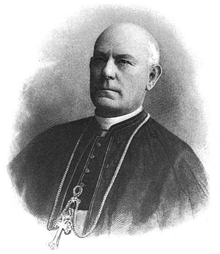
- Happiness is the only sanction of life; where happiness fails, existence remains a mad and lamentable experiment.
- George Santayana in The Life of Reason (1905).
- The greatest happiness you can have is knowing that you do not necessarily require happiness.
- William Saroyan, My Heart's in the Highlands (1939).
- Let us meditate on the love of God, who being supremely happy Himself, communicateth perfect happiness to us. Supreme happiness doth not make God forget us; shall the miserable comforts of this life make us forget Him?
- James Saurin reported in Josiah Hotchkiss Gilbert, Dictionary of Burning Words of Brilliant Writers (1895), p. 270.
- No man can live a happy life, or even a supportable life, without the study of wisdom.
- Seneca the Younger, Moral Letters, R. Gummere, trans. (1917)
- But, O, how bitter a thing it is to look into happiness through another man's eyes!
- William Shakespeare, As You Like It (c.1599-1600), Act V, scene 2, line 47.
- Would I were with him, wheresome'er he is, either in heaven or in hell.
- William Shakespeare, Henry V (c. 1599), Act II, scene 3, line 6.
- How vainly seek
The selfish for that happiness denied
To aught but virtue!- Percy Bysshe Shelley, Queen Mab (1813), Canto V.
- Our happiness depends on what we are, our individuality, whereas in most cases we take into account only our fate, only what we have or represent.
- Arthur Schopenhauer, “Aphorisms on the Wisdom of Life,” Parerga und Paralipomena, E. Payne, trans. (1974) Vol. 1, pp. 317-318
- Whether we are in a pleasant or a painful state depends, ultimately, upon the kind of matter that pervades and engrosses our consciousness. In this respect, purely intellectual occupation, for the mind that is capable of it, will, as a rule, do much more in the way of happiness than any form of practical life, with its constant alternations of success and failure, and all the shocks and torments it produces.
- Arthur Schopenhauer, Counsels and Maxims, T. Saunders, trans., § 7
- Happiness is a wine of the rarest vintage, and seems insipid to vulgar taste.
- Logan Pearsall Smith, Afterthoughts (1931), in All Trivia (1984), p. 150
- Happiness does not depend on the size or content of a goal, but on the strength of the desire to have it.
- Simon Soloveychik, Parenting for Everyone (1989).
- Happy is the man that findeth wisdom, and the man that getteth understanding. For the merchandise of it is better than the merchandise of silver, and the gain thereof than fine gold. She is more precious than rubies: and all the things thou canst desire are not to be compared unto her.
- Place before thyself the ideal of perfection, not that of happiness, for by doing what makes thee wiser and better, thou shalt find the peace and joy in which happiness consists.
- John Lancaster Spalding, Aphorisms and Reflections (1901), p. 114
- Happiness is possible only in a relationship with a partner. Imagine that some fellow who has lived his life as a singer goes to an uninhabited island and sings as loudly as possible. If there is no one there to hear him, he will not be happy. To realize that we exist for the sake of others is the great achievement that changes our lives. When we realize that our life is not ours alone but is meant to be for the sake of the other, we begin to follow a path different from the one we were on. Just as singing to yourself will not make you happy, there is no joy without a partner. Even the smallest and most trivial thing can bring you happiness when you do it for another.
- Sun Myung Moon, 2009, As a Peace-loving Global Citizen, Page 139.
- Kindness of heart is always happy.
- Publius Syrus, The Moral Sayings of Publius Syrus (1856), # 876
T
- Many people live with a tormentor in their head that continuously attacks and punishes them and drains them of vital energy. It is the cause of untold misery and unhappiness, as well as of disease. The good news is that you can free yourself from your mind. This is the only true liberation. You can take the first step right now. Start listening to the voice in your head as often as you can. Pay particular attention to any repetitive thought patterns, those old gramophone records that have been playing in your head perhaps for many years. This is what I mean by "watching the thinker," which is another way of saying: listen to the voice in your head, be there as the witnessing presence. When you listen to that voice, listen to it impartially. That is to say, do not judge. Do not judge or condemn what you hear, for doing so would mean that the same voice has come in again through the back door. You'll soon realize: there is the voice, and here I am listening to it, watching it. This I am realization, this sense of your own presence, is not a thought. It arises from beyond the mind.
- Eckhart Tolle in A New Earth: Awakening to Your Life's Purpose,(Full text) p. 17, (2005)
- Be it even over our bleaching bones the truth will triumph! We will blaze the trail for it. It will conquer! Under all the severe blows of fate, I shall be happy as in the best days of my youth! Because, my friends, the highest human happiness is not the exploitation of the present but the preparation of the future.
- Leon Trotsky, 'I Stake My Life', opening telephone address to the N.Y. Hippodrome Meeting for the opening event of the Dewey Commission on the Moscow Trial (February 9, 1937)
V
W
- Clap along if you feel like a room without a roof
Because I'm happy
Clap along if you feel like happiness is the truth
Because I'm happy
Clap along if you know what happiness is to you
Because I'm happy
Clap along if you feel like that's what you wanna do- Pharrell Williams, Happy (21 November 2013) from the Despicable Me 2 soundtrack album
- One thing I am convinced more and more is true and that is this: the only way to be truly happy is to make others happy. When you realize that and take advantage of the fact, everything is made perfect.
- William Carlos Williams, letter to his mother, written from the University of Pennsylvania (12 February 1904), published in The Selected Letters of William Carlos Williams (1957) edited by John C. Thirlwall, p. 5
- Only a man who lives not in time but in the present is happy.
- Ludwig Wittgenstein, Journal entry, July 8, 1916
- All the things I really like to do are either immoral, illegal, or fattening.
- Attributed to Alexander Woollcott in various sources. Reported as unverified in Respectfully Quoted: A Dictionary of Quotations (1989). Sometimes heard, "immoral, illegal, fattening, or too expensive".
X
- You seem, Antiphon, to imagine that happiness consists in luxury and extravagance. But my belief is that to have no wants is divine; to have as few as possible comes next to the divine; and as that which is divine is supreme, so that which approaches nearest to its nature is nearest to the supreme.
- Xenophon, Socrates and Antiphon in Memorabilia, 1.6.1
Y
- True happiness ne'er entered at an eye;
True happiness resides in things unseen.- Edward Young, Night Thoughts (1742-1745), Night VIII, line 1,021.
- Happiness is a good flow of life.
- Zeno of Citium, as quoted by Stobaeus, ii. 77.
Hoyt's New Cyclopedia Of Practical Quotations
- Quotes reported in Hoyt's New Cyclopedia Of Practical Quotations (1922), p. 350-52.
- Hold him alone truly fortunate who has ended his life in happy well-being.
- Æschylus, Agamemnon, 928.
- 'Twas a jolly old pedagogue, long ago,
Tall and slender, and sallow and dry;
His form was bent, and his gait was slow,
His long thin hair was white as snow,
But a wonderful twinkle shone in his eye.
And he sang every night as he went to bed,
"Let us be happy down here below;
The living should live, though the dead be dead,"
Said the jolly old pedagogue long ago.- George Arnold, The Jolly Old Pedagogue.
- Real happiness is cheap enough, yet how dearly we pay for its counterfeit.
- Hosea Ballou, Manuscript, Sermons.
- La massima felicita divisa nel maggior numero.
- The greatest happiness of the greatest number.
- Cesare Beccaria, Trattato dei Delitti e delle Pene (Treatise of Crimes and of Punishment), Introduction (1764).
- Priestly was the first (unless it was Beccaria) who taught my lips to pronounce this sacred truth—that the greatest happiness of the greatest number is the foundation of morals and legislation.
- Jeremy Bentham, Volume X, p. 142.
- Quid enim est melius quam memoria recte factorum, et libertate contentum negligere humana?
- Oh, Mirth and Innocence! Oh, Milk and Water!
Ye happy mixtures of more happy days!- Lord Byron, Beppo (1818), Stanza 80.
- * * * all who joy would win
Must share it,—Happiness was born a twin.- Lord Byron, Don Juan (1818-24), Canto II, Stanza 172.
- There comes
For ever something between us and what
We deem our happiness.- Lord Byron, Sardanapalus, Act I, scene 2.
- Quid datur a divis felici optatius hora?
- What is there given by the gods more desirable than a happy hour?
- Catullus, Carmina, LXII. 30.
- The message from the hedge-leaves,
Heed it, whoso thou art;
Under lowly eaves
Lives the happy heart.- John Vance Cheney, The Hedge-bird's Message.
- In animi securitate vitam beatam ponimus.
- We think a happy life consists in tranquillity of mind.
- Cicero, De Natura Deorum, I. 20.
- Le bonheur semble fait pour être partagé.
- Happiness seems made to be shared.
- Pierre Corneille, Notes par Rochefoucauld.
- If solid happiness we prize,
Within our breast this jewel lies,
And they are fools who roam;
The world has nothing to bestow,
From our own selves our bliss must flow,
And that dear hut,—our home.- Nathaniel Cotton, The Fireside.
- Who is the happiest of men? He who values the merits of others,
And in their pleasure takes joy, even as though t'were his own.- Johann Wolfgang von Goethe, Distichs.
- Das beste Glück, des Lebens schönste Kraft
Ermattet endlich.- The highest happiness, the purest joys of life, wear out at last.
- Johann Wolfgang von Goethe, Iphigenia auf Tauris, IV. 5. 9.
- Now happiness consists in activity: such is the constitution of our nature: it is a running stream, and not a stagnant pool.
- John Mason Good, The Book of Nature, Series III, Lecture VII.
- The loss of wealth is loss of dirt,
As sages in all times assert;
The happy man's without a shirt.- John Heywood, Be Merry Friends.
- And there is ev'n a happiness
That makes the heart afraid.- Thomas Hood, Ode to Melancholy.
- Fuge magna, licet sub paupere tecto
Reges et regum vita procurrere amicos.- Avoid greatness; in a cottage there may be more real happiness than kings or their favorites enjoy.
- Horace, Epistles, I. 10. 32.
- Non possidentem multa vocaveris
Recte beatum; rectius occupat
Nomen beati, qui Deorum
Muneribus sapienter uti,
Duramque callet pauperiem pati,
Pejusque leto flagitium timet.- You will not rightly call him a happy man who possesses much; he more rightly earns the name of happy who is skilled in wisely using the gifts of the gods, and in suffering hard poverty, and who fears disgrace as worse than death.
- Horace, Carmina, IX, Book 4. 9. 45.
- That Action is best which procures the greatest Happiness for the greatest Numbers; and that worst, which, in like manner, occasions misery.
- Frances Hutcheson, Inquiry into the Original of our Ideas of Beauty and Virtue (1725). Treatise II, Section 3. An Inquiry concerning Moral Good and Evil.
- Upon the road to Romany
It's stay, friend, stay!
There's lots o' love and lots o' time
To linger on the way;
Poppies for the twilight,
Roses for the noon,
It's happy goes as lucky goes,
To Romany in June.- Wallace Irwin, From Romany to Rome.
- Happiness consists in the multiplicity of agreeable consciousness.
- Samuel Johnson, reported in James Boswell, Life of Johnson (1766).
- Ducimus autem
Hos quoque felices, qui ferre incommoda vitæ,
Nec jactare jugum vita didicere magistra.- We deem those happy who, from the experience of life, have learned to bear its ills, without being overcome by them.
- Juvenal, Satires, XII. 20.
- On n'est jamais si heureux, ni si malheureux, qu'on se l'imagine.
- We are never so happy, nor so unhappy, as we suppose ourselves to be.
- François de La Rochefoucauld, Maximes.
- A sound Mind in a sound Body, is a short but full description of a happy State in this World.
- John Locke, Thoughts Concerning Education.
- Happiness, to some elation;
Is to others, mere stagnation.- Amy Lowell, Happiness.
- Now the heart is so full that a drop overfills it,
We are happy now because God wills it.- James Russell Lowell, The Vision of Sir Launfal, Prelude to Part I, line 61.
- Sive ad felices vadam post funera campos,
Seu ferar ardentem rapidi Phlegethontis ad undam,
Nec sine te felix ero, nec tecum miser unquam.- Heaven would not be Heaven were thy soul not with mine, nor would Hell be Hell were our souls together.
- Baptista Mantuanus, Eclogue, III. 108.
- Neminem, dum adhuc viveret, beatum dici debere arbitrabatur.
- He (Solon) considered that no one ought to be called happy as long as he was alive.
- Valerius Maximus, Book VII. 2. Ext. 2. Same in Sophocles—Œdipus Rex. End. Herodotus—Clio. 32. Solon to Cræsus. Repeated by Cræsus to Cyrus when on his funeral pyre, thus obtaining his pardon.
- And feel that I am happier than I know.
- John Milton, Paradise Lost (1667; 1674), Book VIII, line 282.
- No eye to watch and no tongue to wound us,
All earth forgot, and all heaven around us.- Thomas Moore, Come o'er the Sea.
- The foolish man seeks happiness in the distance;
The wise grows it under his feet.- James Oppenheim, The Wise.
- Dicique beatus
Ante obitum nemo supremaque funera debet.- Before he is dead and buried no one ought to be called happy.
- Ovid, Metamorphoses, Book III. 136.
- Thus we never live, but we hope to live; and always disposing ourselves to be happy, it is inevitable that we never become so.
- Blaise Pascal, Thoughts, Chapter V, Section I.
- Said Scopas of Thessaly, "But we rich men count our felicity and happiness to lie in these superfluities, and not in those necessary things."
- Plutarch, Morals, Volume II. Of the Love of Wealth.
- Le bonheur des méchants comme un torrent s'écoule.
- The happiness of the wicked flows away as a torrent.
- Jean Racine, Athalie, II. 7.
- Happiness lies not in the mere possession of money; it lies in the joy of achievement, in the thrill of creative effort.
- Franklin D. Roosevelt, First Inaugural Address (4 March 1933).
- Happiness lies in the consciousness we have of it, and by no means in the way the future keeps its promises.
- George Sand, Handsome Lawrence, Chapter III.
- Des Menschen Wille, das ist sein Glück.
- The will of a man is his happiness.
- Friedrich Schiller, Wallenstein's Lager, VII. 25.
- O mother, mother, what is bliss?
O mother, what is bale?
Without my William what were heaven,
Or with him what were hell?- Walter Scott, translation of a ballad of Bürger's.
- Non potest quisquam beate degere, qui se tantum intuetur, qui omnia ad utilitates suas convertit; alteri vivas oportet, si vis tibi vivere.
- No man can live happily who regards himself alone, who turns everything to his own advantage. Thou must live for another, if thou wishest to live for thyself.
- Seneca the Younger, Epistolæ Ad Lucilium, XLVIII.
- Ye seek for happiness—alas, the day!
Ye find it not in luxury nor in gold,
Nor in the fame, nor in the envied sway
For which, O willing slaves to Custom old,
Severe taskmistress! ye your hearts have sold.- Percy Bysshe Shelley, Revolt of Islam, Canto XI, Stanza 17.
- Magnificent spectacle of human happiness.
- Sydney Smith, America, Edinburgh Review, (July, 1824).
- Mankind are always happier for having been happy; so that if you make them happy now, you make them happy twenty years hence by the memory of it.
- Sydney Smith, Lecture on Benevolent Affections.
- Be happy, but be happy through piety.
- Anne Louise Germaine de Staël, Corinne (1807), Book XX, Chapter III.
- Wealth I ask not, hope nor love,
Nor a friend to know me;
All I ask, the heavens above,
And the road below me.- Robert Louis Stevenson, The Vagabond.
- Happiness is an imaginary condition, formerly attributed by the living to the dead, now usually attributed by adults to children, and by children to adults.
- Thomas Tsasz "Emotions", p. 36.
- For it stirs the blood in an old man's heart;
And makes his pulses fly,
To catch the thrill of a happy voice,
And the light of a pleasant eye.- Nathaniel Parker Willis, Saturday Afternoon, Stanza 1.
- True happiness is to no spot confined.
If you preserve a firm and constant mind,
'Tis here, 'tis everywhere.- John Huddlestone Wynne, History of Ireland.
- We're charm'd with distant views of happiness,
But near approaches make the prospect less.- Thomas Yalden, Against Enjoyment, line 23.
Dictionary of Burning Words of Brilliant Writers
- Quotes reported in Josiah Hotchkiss Gilbert, Dictionary of Burning Words of Brilliant Writers (1895).
- The sacrifices required in the Christian life are necessary to emancipate the soul, and raise it above its servile dependence on condition. They are losses of mere happiness, and for just that reason they are preparations of joy.
- Horace Bushnell, p. 297.
- Happiness is not the end of duty, it is a constituent of it. It is in it and of it; not an equivalent, but an element.
- Henry Giles, p. 297.
- It is a great truth, wonderful as it is undeniable, that all our happiness — temporal, spiritual, and eternal — consists in one thing; namely, in resigning ourselves to God, and in leaving ourselves with Him, to do with us and in us just as He pleases.
- Madame Guyon, p. 297.
- There is something better for us in the world than happiness. We will take happiness as the incident of this, gladly and gratefully. We will add a thousand fold to the happiness of the present in the fearlessness of the future which it brings; but we will not place happiness first, and thus cloud our heads with doubts, and fill our hearts with discontent. In the blackest soils 'grow the richest flowers, and the loftiest and strongest trees spring heavenward among the rocks.
- Josiah Gilbert Holland, p. 296.
- When we are not too anxious about happiness and unhappiness, but devote ourselves to the strict and unsparing performance of duty, then happiness comes of itself — nay, even springs from the midst of a life of troubles and anxieties and privations.
- Wilhelm von Humboldt, p. 297.
- In vain do they talk of happiness who never subdued an impulse in obedience to a principle. He who never sacrificed a present to a future good, or a personal to a general one, can speak of happiness only as the blind do of colors.
- Horace Mann, p. 297.
- Happiness is neither within us nor without us, it is the union of ourselves with God.
- Blaise Pascal, p. 297.
- The soul's calm sunshine.
- Alexander Pope, p. 298.
- Happiness is not perfected until it is shared.
- Jane Porter, p. 298.
- Brethren, happiness is not our being's end and aim. The Christian's aim is perfection, not happiness; and every one of the sons of God must have something of that spirit which marked his Master.
- Frederick William Robertson, p. 296.
- So long as you do not quarrel with sin, you will never be a truly happy man.
- J. C. Ryle, p. 297.
- Beware what earth calls happiness; beware
All joys, but joys that never can expire.- Edward Young, p. 298.
- Happiness depends upon ourselves.
- When you arise in the morning, think of what a precious privilege it is to be alive – to breathe, to think, to enjoy, to love.
See also
External links
Emotions
Adoration ~ Affection ~ Agony ~ Amusement ~ Anger ~ Anguish ~ Anxiety ~ Apathy ~ Awe ~ Boredom ~ Calmness ~ Cheerfulness ~ Compassion ~ Contempt ~ Contentment ~ Depression ~ Desire ~ Disappointment ~ Discontent ~ Disgust ~ Ecstasy ~ Embarrassment ~ Empathy ~ Enthusiasm ~ Envy ~ Euphoria ~ Fear ~ Gratitude ~ Grief ~ Guilt ~ Happiness ~ Hatred ~ Hope ~ Hostility ~ Humiliation ~ Impatience ~ Indignation ~ Insecurity ~ Jealousy ~ Joy ~ Loneliness ~ Loss ~ Love ~ Lust ~ Malice ~ Melancholy ~ Nostalgia ~ Panic ~ Passion ~ Pity ~ Pride ~ Rage ~ Regret ~ Remorse ~ Resentment ~ Sadness ~ Shame ~ Sorrow ~ Suffering ~ Surprise ~ Sympathy ~ Wonder ~ Worry